The statutory public inquiry into the Post Office scandal has gone relatively unnoticed over the past two years, but in that time, those au fait with the case have been shocked on an almost daily basis.
The airing of ITV’s Mr Bates vs the Post Office drama and accompanying documentary eventually put the scandal centre stage in the public discourse and it is now getting the attention it deserves.
Computer Weekly has been following the inquiry since it began hearing evidence in May 2022. Here, we list some of the reports that make essential reading for those who are relatively new to the UK’s widest-ever miscarriage of justice.
When originally set up as a government department inquiry without the power to call witnesses, there was outrage and accusations of whitewashing. But following pressure from subpostmasters and their supporters, the inquiry was put on a statutory footing, with a judge in charge and the power to call witnesses to give evidence.
So far, there have been four phases of the inquiry, chaired by retired judge Wyn Williams. It began with the victims telling their stories. This was followed in October 2022 by phase two, which saw an investigation into the Horizon IT system, its procurement, design, pilot, roll-out and modifications. Then, at the beginning of 2023, came phase three, with the operation of the Horizon system under the spotlight. The recently concluded fourth phase, which began hearing evidence in July 2023, shone the spotlight on the practices of the lawyers and investigators involved in the prosecutions of subpostmasters.
Each installment has produced shocking evidence that has exposed barely imaginable malfeasance on the part of a British institution, once regarded fondly.
Computer Weekly first exposed the scandal in 2009, revealing the stories of seven subpostmasters, and has followed it closely ever since.

Wyn William, Post Office Horizon IT Inquiry chair
Inquiry chair Wyn Williams has been hearing evidence since May 2022.
Phase one – February 2022
Phase one of the inquiry heard witness statements from the victims of the scandal.
Former subpostmasters, their lives devastated after being held responsible for unexplained accounting, went through the painful experience of having to relive harrowing periods of their lives.
This was about two years before a dramatisation of their treatment put the Post Office scandal into public discourse and political debate.
When the drama was aired in January 2024, the public outrage was palpable, but it did not reveal anything new. What it did reveal was that the written word, of which Computer Weekly has written many thousands about the scandal since 2009, was not enough to catch the attention of the public. The drama did.
The drama was based on real lives – lives destroyed.
Here are all the recordings of evidence given to the inquiry by victims of the scandal telling their stories.
Phase two – October 2022
The Post Office scandal began with the procurement of Horizon software in the 1990s, after John Major’s government agreed to the public finance initiative (PFI) deal with ICL, later acquired by Fujitsu. Subpostmasters were promised the system would make their lives easier.
Automating accounting processes across thousands of branches was a logical step in the computer age, but the procurement and design of a system that was, at the time, the largest non-military IT project in the UK was anything but logical.
Warning signs were ignored during negotiations, which continued under Tony Blair’s premiership, and the subpostmasters ultimately paid the price.
At the end of phase two of the inquiry, Sam Stein KC, representing former subpostmasters, asked whether the scandal was the result of a “cock-up or cook-up”.
Problems from the start
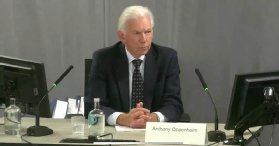
Anthony Oppenheim, former commercial and finance director at ICL Pathway
During an inquiry hearing in October 2022, Anthony Oppenheim, former commercial and finance director at ICL Pathway, which was the company set up by ICL/Fujitsu to run the Horizon project, said problems with the Post Office Horizon IT system reported before its roll-out should have been regarded as a “showstopper”, but weren’t.
The roll-out of Horizon should have stopped until reported problems were fixed, and subpostmasters having trouble balancing their books should have been given “the benefit of the doubt”, he told the hearing.
Read Computer Weekly’s report from the inquiry hearing about problems reported with the Post Office’s Horizon IT system before its roll-out should have been regarded as a “show-stopper”.
Watch Anthony Oppenheim’s evidence to the inquiry.
Premonition of Horizon tragedy
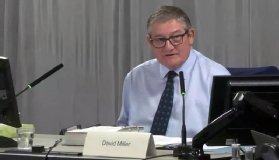
David Miller, former Post Office Horizon programme director
The public inquiry saw documents that revealed the feedback to the Post Office after live trials saw Horizon run in 300 offices in 1999. There were serious concerns over the software, which was causing “difficulties and trauma” for subpostmasters struggling to balance their accounts.
Former Post Office Horizon programme director David Miller said that in a meeting with the National Federation of Subpostmasters (NFSP) executive in 1999, there was a general discussion on the severe difficulties being experienced by subpostmasters.
Read Computer Weekly’s report from the inquiry hearing about how trials of the Horizon computer system in Post Office branches in 1999 led to a warning from subpostmasters that software problems meant “a tragedy was not far away”.
Watch David Miller’s evidence to the inquiry.
Horizon developers were a ‘joke’
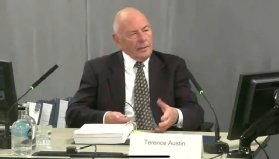
Terence Austin, former systems programme director at ICL Pathway
The teams developing the software were not up to scratch and were considered “the joke of the building” at Fujitsu/ICL UK.
During the questioning of Terence Austin, former systems programme director at ICL Pathway, it emerged that a taskforce was set up to investigate problems in Horizon’s electronic point of sale service (EPOSS) development. The taskforce reported that whoever wrote the code “had no understanding of elementary mathematics or the most basic rules of programming”.
Software developer David McDonnell told the inquiry that, when he arrived, the EPOSS development team was “like the Wild West” with “no standards, a lack of rules and no design”.
He said the team was “the joke of the building”.
Read Computer Weekly’s report from the inquiry on how Horizon system code writers lacked basic programming skills, according to the taskforce set up to investigate reported problems with the controversial software.
Read how the team working on controversial Post Office Horizon EPOSS software was the ‘joke of the building’.
Watch Terance Austin’s evidence to the inquiry.
Hardball negotiation left subpostmasters vulnerable

Stuart Sweetman, former Post Office Counters managing director
Hardball negotiations between the government, the Post Office and ICL, which was acquired by Fujitsu, meant subpostmasters were ignored and thrown into a tragedy that could have been averted.
Former Post Office Counters managing director Stuart Sweetman told the inquiry the government was playing hardball because the Post Office had extracted quite a good deal from it.
He was asked about a Horizon Working Group meeting in June 1999, where it was said that despite serious problems, there was no question of postponing or delaying the project.
Read Computer Weekly’s report from the inquiry on how playing a game of ‘hardball’ in Horizon negotiations left subpostmasters exposed to tragedy.
Watch Stuart Sweetman’s evidence to the inquiry.
Confirmation bias
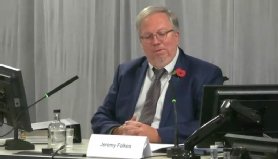
Jeremy Folkes, former senior tech lead at the Post Office
Post Office investigators were so convinced that subpostmasters were cooking the books that they failed to investigate alleged IT problems.
Jeremy Folkes, former senior tech lead at the Post Office, told the inquiry there was an understanding in investigation teams that there were concerns over the accounting system integrity, but they were ignored because people in the investigations and prosecutions side in the Post Office had confirmation bias.
Read Computer Weekly’s report on how confirmation bias led the Post Office to prosecute subpostmasters without investigation.
Watch Jeremy Folkes’ evidence to the inquiry.
Pressure from Japan
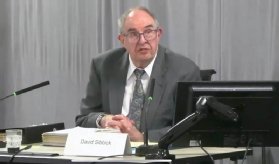
Former civil servant David Sibbick
The inquiry heard how the Horizon project became a foreign affairs issue for the UK. Pressure was put on the UK government by IT supplier Fujitsu to sign off the contract when it was in doubt.
In 1998, the British embassy in Tokyo wrote to the UK government warning it of serious economic repercussions, including UK job losses, should the contract with the Post Office be cancelled.
During the inquiry hearing, former civil servant David Sibbick said there was “quite a lot” of time pressure coming from Fujitsu to get the contract done.
Read Computer Weekly’s report on how a telegram from the British Embassy in Tokyo to UK government put pressure on ministers to sign off controversial Horizon contract.
Watch David Sibbick’s evidence to the inquiry.
Federation failed its members
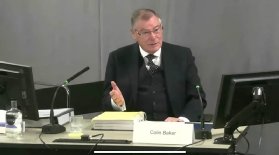
Colin Baker, former general secretary for the National Federation of Subpostmasters
Part of the problem for subpostmasters is they never knew of the problems in the background until they were struck by them. The National Federation of Subpostmasters (NFSP) didn’t help. The organisation that was supposed to represent subpostmasters deliberately suppressed information about computer errors.
Colin Baker, former NFSP general secretary, said the organisation wanted the public to think the Horizon project “was fine”.
Read Computer Weekly’s inquiry report on how the NFSP kept details of computer problems quiet.
Watch Colin Baker’s evidence to the inquiry.
Post Office boosted its coffers
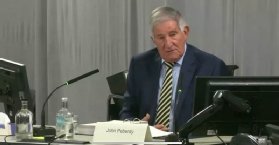
John Peberdy, former NFSP president
The public inquiry heard how the Post Office made financial gains when it forced subpostmasters to pay for losses in their branches that were caused by computer errors.
Former NFSP president John Peberdy told the inquiry the Post Office was keen to get subpostmasters to cover accounting shortfalls with their own money, rather than get to the bottom of what had caused them.
Read Computer Weekly’s inquiry report on how the Post Office boosted its ‘coffers’ through forcing subpostmasters to cover unexplained shortfalls.
Watch John Peberdy’s evidence to the inquiry.
Phase three – January 2023
Almost a year after the statutory public inquiry began, phase three moved it to the operation of the Horizon system. This was a large, complex system involving the interaction of computer hardware, telecoms connections and other software systems, and it was being introduced to users who largely had little or no experience of computers.
Closing phase three, Ed Henry KC, representing Post Office victims, said the scandal was “as dark a chapter in our governmental, corporate and legal history as can be imagined, and sadly, it will get darker yet”.
‘Hail the almighty Horizon’
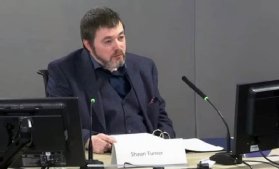
Shaun Turner, a former senior executive in the Post Office National Business Support Centre
At the beginning of phase three, the inquiry heard that the Post Office sent messages to staff designed to reassure them that the Horizon accounting system was robust, after Computer Weekly first revealed problems in 2009.
Senior Post Office executives told staff as part of its internal messaging not to reveal problems caused by Horizon. Shaun Turner, a former senior executive working in the Post Office National Business Support Centre (NBSC), which supported subpostmasters using Horizon, told the Post Office inquiry he was aware “as a general theme” of the concern in Post Office that if the problems were known it would cause a lack of confidence in Horizon. He said he had this opinion “largely from the messaging that was coming out of the business”.
Read Computer Weekly’s report from the inquiry looking at how the Post Office’s most senior executives hushed up Horizon errors.
Watch Shaun Turner’s evidence to the inquiry.
Unrestricted, unaudited, unbelievable
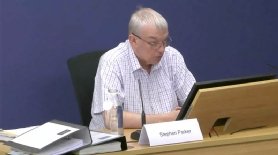
Stephen Parker, former manager at Fujitsu’s Software Support Centre
The Post Office was prosecuting people based on data from the Horizon system, data that should be 100% trustworthy. Yet staff in the Fujitsu support centre had unaudited access to subpostmaster accounts and could make changes without their knowledge.
Stephen Parker, a former manager at Fujitsu’s Software Support Centre, said staff remotely accessing branch systems simply relied on them being trustworthy and following the access policy, with no policing of their activity.
Read Computer Weekly’s report from the inquiry about Fujitsu’s ‘unrestricted and unauditable’ remote access to Post Office branch systems.
Watch Stephen Parker’s evidence to the inquiry.
‘Toxic, racist and rudderless’
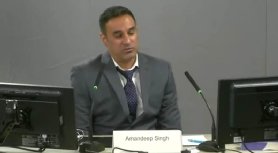
Amandeep Singh, former IT consultant at ICL
The people working in the support centres reported a toxic culture with poor leadership as well as some experiencing racism daily.
IT consultant Amandeep Singh worked at ICL on the Post Office’s Horizon helpdesk in Wakefield, Yorkshire, from 2000 to 2001. He told the inquiry that the helpdesk operation he was part of was rudderless, resentful, racist and undertrained to help subpostmasters. There was also a culture of not trusting the subpostmasters, he said.
Read more about the chaotic Fujitsu Horizon helpdesk in this Computer weekly report from the inquiry.
Watch Amandeep Singh’s evidence to the inquiry.
Celebrating miscarriages of justice
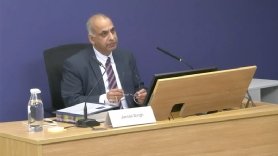
Jarnail Singh, former head of criminal law at the Post Office
The Post Office used its legal teams and external lawyers to shut subpostmasters up and destroy them. Seema Misra, former subpostmaster in Byfleet, Surrey, was sent to prison in 2010 after being wrongly prosecuted for theft.
During the questioning of former Post Office executive Rod Ismay, in the latest Post Office Horizon scandal public inquiry hearing, evidence emerged of the gleeful response of Jarnail Singh, former head of criminal law at the Post Office, after the organisation defeated Misra in court over her challenges to the reliability of the Horizon accounting system.
Read more about Jarnail Singh’s celebratory email bragging about how his team ‘destroyed attack on the Horizon system’ and put a woman in prison.
Whitewash Horizon report
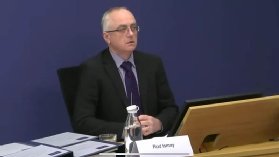
Rod Ismay, head of product and branch accounting at the Post Office
In 2010, amid claims subpostmasters were being blamed and prosecuted for accounting shortfalls caused by the Horizon system, the Post Office commissioned an internal report on its performance. The inquiry was told the report lacked objectivity and its aim from the outset was to give the software a clean bill of health.
There were no terms of reference for the report, which was instigated by then Post Office managing director David Smith, but it was made clear to the head of product and branch accounting (P&BA) Rod Ismay, who was tasked with completing the report, that he should just report on “positive reasons to be assured about Horizon” to give a clean bill of health to the software.
Read Computer Weekly’s inquiry report about the ‘whitewash’ investigation.
Watch Rod Ismay’s evidence to the inquiry.
Phase 4 – July 2023
Phase four of the statutory public inquiry ran for six months, punctuated by delays as a result of the Post Office’s failure to disclose information in a timely manner. Darkly ironic as the phase was investigating the Post Office’s legal practices when prosecuting subpostmasters, which included failure to disclose information to subpostmaster defence teams. The phase must be seen in the context that over 100 subpostmasters have had wrongful criminal convictions overturned, with about 800 more set to be quashed en masse when government legislation completes its journey through Parliament.
Summarizing phase four, Tim Moloney KC representing former subpostmasters said the phase had laid the ground for the very real prospect that former Post Office staff and those supporting the Post Office at external companies could face criminal investigation themselves. He said: “At worst, [their] actions now, as perhaps just a starting point, lay some witnesses open to rigorous criminal investigation.”
Changing stories

Helen Rose, former Post Office auditor
The inquiry heard that, in 2003 expert IT witness Jason Coyne was asked to report on the Horizon system as part of a dispute between a subpostmaster and the Post Office. In his independent report, which was ordered by the judge, he said there were clear problems with the technology. The Post Office tried to convince him that he was wrong about Horizon. When he refused to change his statement, it dropped its case with the subpostmaster and paid her off in a non-disclosure agreement.
Phase four heard from former Post Office auditor Helen Rose who was involved in a legal battle with former subpostmaster Lee Castleton, who was made bankrupt after challenging the Post Office in court after it blamed him for unexplained accounting shortfalls. She produced a witness statement in court that differed from her original audit report, which was favourable to Castleton. In her witness statement she said he had been drinking at the time of the audit, but in her audit report did not mention this.
Read Computer Weekly’s report about how Helen Rose changed her story for witness statement used to destroy subpostmasters.
Watch Helen Rose’s evidence in phase four of the inquiry.
No concern for welfare of subpostmasters
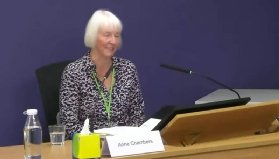
Anne Chambers, former Fujitsu IT expert
The Post Office’s primary consideration was to “defend the integrity of its [IT] system” when taking subpostmasters to court over unexplained accounting shortfalls, and not the subpostmasters’ welfare, according to a Fujitsu memo written in the aftermath of the court battle with Lee Castleton.
In the memo, former Fujitsu IT expert Anne Chambers wrote that the Post Office was not concerned about getting to the bottom of reported problems with the Horizon computer system because it wanted to protect its reputation.
Read Computer Weekly’s report about a Fujitsu memo that said the Post Office had no interest in subpostmaster welfare.
Watch Anne Chambers evidence to the public inquiry.
Robotic memory failure
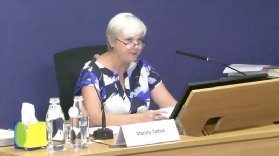
Many Talbot, former Post Office lawyer
Memory loss has been a commonly recurring theme in phase four of the public inquiry. The selective memories of the lawyers and investigators involved in the prosecution of subpostmasters was never clearer than in the evidence of former Post Office lawyer Mandy Talbot. She was nicknamed “the Post Office’s very own evil robot” by a barrister representing victims of the scandal.
In this Computer Weekly report, read more about how Talbot’s amnesia hid the names of individuals behind Post Office strategy.
Watch Mandy Talbot’s evidence to the inquiry.
What witness statement?

Elaine Cottam, former Post Office retail line manager
Elaine Cottam, former retail line manager at the Post Office, told the public inquiry that, despite having signed a witness statement to be used in court, she has no recollection of writing it. The witness statement was to be used by the Post Office in a legal dispute with one of the over 100 branches she oversaw in her role.
During the hearing, Cottam denied any knowledge of the case and said she didn’t understand why she was giving evidence at the inquiry.
Read Computer Weekly’s report on Elaine Cottam’s evidence in phase four.
Watch Elain Cottam’s evidence to phase four of the inquiry.
‘They’re all crooks’
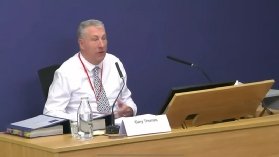
Gary Thomas, former Post Office investigator
When Gary Thomas was asked why he was happy he had kept his old investigation papers he said: “I want to prove that there is no FFFFiiinnn [sic] ‘Case for the Justice of Thieving Subpostmasters’ and that we were the best investigators they ever had and they were all crooks!!”
The subpostmasters he was referring to went on to prove, in the High Court, that the Horizon system was error-prone and forced the government to establish a statutory public inquiry into the Post Office Horizon scandal.
Read Computer Weekly’s report on former Post Office investigator labelling subpostmaster campaigners ‘crooks’.
Watch Gary Thomas’s evidence in phase four of the inquiry.
Phase five and six – April 2024
Phase five and six of the inquiry, due to start this month, promises to be the most revelatory of all, featuring, to name a few, former Post Office CEO Paula Vennells, Liberal Democrat party leader Ed Davey, civil servants and it all kicks off with Alan Bates, the former subpostmaster who led the fight for justice.
>>> Read full article>>>
Copyright for syndicated content belongs to the linked Source : Computer Weekly – https://www.computerweekly.com/feature/Post-Office-Horizon-IT-scandal-inquiry-Two-years-of-shocking-revelations










